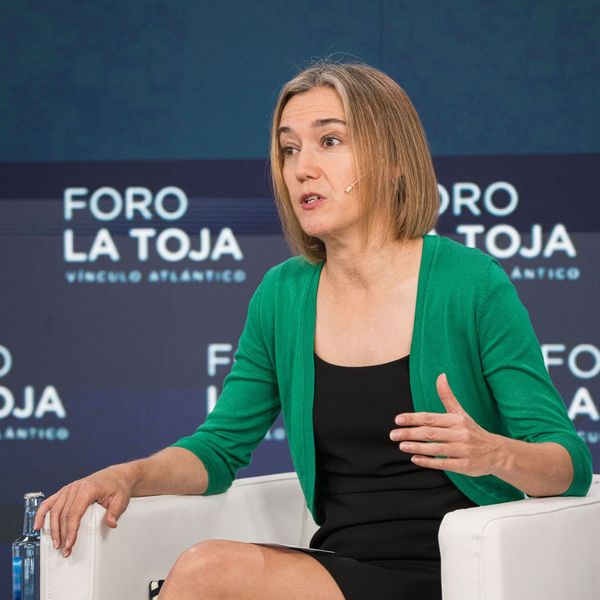New Talks Aimed at Ending Ukraine Conflict Underway
Talks this week follow previous negotiations in Minsk that failed to bring lasting peace deal
New peace talks aimed at ending the months-long conflict in Ukraine began on Wednesday.
Over 4,700 people have been killed, over 10,000 wounded, and more than one million displaced in the conflict so far.
The talks involve representatives of Russia, Ukraine and the Organization of Security and Cooperation in Europe (OSCE) and are taking place in Minsk, the capital of Belarus.
The Associated Press reports that a second round of talks is planned for Friday.
On Tuesday, Ukraine took a step towards NATO membership when its parliament voted to drop the country's 'non-aligned' status. Russia denounced that move, with Deputy Defense Minister Anatoly Antonov telling Russian news agency Interfax: "NATO countries pushed Kiev to this counterproductive decision, trying to turn Ukraine into a front line of confrontation with Russia."
UN High Commissioner for Human Rights Zeid Ra'ad Al Hussein warned last week that the situation for civilians in areas directly affected by the conflict was becoming "increasingly dire."
An Urgent Message From Our Co-Founder
Dear Common Dreams reader, The U.S. is on a fast track to authoritarianism like nothing I've ever seen. Meanwhile, corporate news outlets are utterly capitulating to Trump, twisting their coverage to avoid drawing his ire while lining up to stuff cash in his pockets. That's why I believe that Common Dreams is doing the best and most consequential reporting that we've ever done. Our small but mighty team is a progressive reporting powerhouse, covering the news every day that the corporate media never will. Our mission has always been simple: To inform. To inspire. And to ignite change for the common good. Now here's the key piece that I want all our readers to understand: None of this would be possible without your financial support. That's not just some fundraising cliche. It's the absolute and literal truth. We don't accept corporate advertising and never will. We don't have a paywall because we don't think people should be blocked from critical news based on their ability to pay. Everything we do is funded by the donations of readers like you. Will you donate now to help power the nonprofit, independent reporting of Common Dreams? Thank you for being a vital member of our community. Together, we can keep independent journalism alive when it’s needed most. - Craig Brown, Co-founder |
New peace talks aimed at ending the months-long conflict in Ukraine began on Wednesday.
Over 4,700 people have been killed, over 10,000 wounded, and more than one million displaced in the conflict so far.
The talks involve representatives of Russia, Ukraine and the Organization of Security and Cooperation in Europe (OSCE) and are taking place in Minsk, the capital of Belarus.
The Associated Press reports that a second round of talks is planned for Friday.
On Tuesday, Ukraine took a step towards NATO membership when its parliament voted to drop the country's 'non-aligned' status. Russia denounced that move, with Deputy Defense Minister Anatoly Antonov telling Russian news agency Interfax: "NATO countries pushed Kiev to this counterproductive decision, trying to turn Ukraine into a front line of confrontation with Russia."
UN High Commissioner for Human Rights Zeid Ra'ad Al Hussein warned last week that the situation for civilians in areas directly affected by the conflict was becoming "increasingly dire."
New peace talks aimed at ending the months-long conflict in Ukraine began on Wednesday.
Over 4,700 people have been killed, over 10,000 wounded, and more than one million displaced in the conflict so far.
The talks involve representatives of Russia, Ukraine and the Organization of Security and Cooperation in Europe (OSCE) and are taking place in Minsk, the capital of Belarus.
The Associated Press reports that a second round of talks is planned for Friday.
On Tuesday, Ukraine took a step towards NATO membership when its parliament voted to drop the country's 'non-aligned' status. Russia denounced that move, with Deputy Defense Minister Anatoly Antonov telling Russian news agency Interfax: "NATO countries pushed Kiev to this counterproductive decision, trying to turn Ukraine into a front line of confrontation with Russia."
UN High Commissioner for Human Rights Zeid Ra'ad Al Hussein warned last week that the situation for civilians in areas directly affected by the conflict was becoming "increasingly dire."

